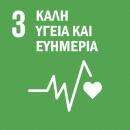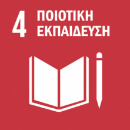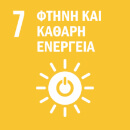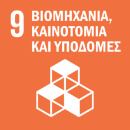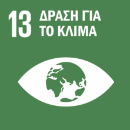Material ESG Topics
-
Environment
-
Society
-
Corporate Governance
ESG Topics
Communication
with Stakeholders
In our Group, in accordance with our values and principles, strategy, activities, the market, neighbouring communities and the society as a whole, we regularly redefine our stakeholders, namely those who are significantly influenced by and/ or influence our business activities, with the aim of ensuring an effective two-way communication. In this context, we have acknowledged the following groups:
Employees
| Means of Communication / Participation Methods | Communication Frequency |
| Dialogue, scheduled meetings, webcasts /speeches, publications, newsletters. | Periodically |
| Intranet (internal communication network), employee suggestion box. | Daily |
Customers
| Means of Communication / Participation Methods | Communication Frequency |
| Dialogue, scheduled meetings, Q&A, contracts, events, focus groups | Daily and periodically |
Consumers
| Means of Communication / Participation Methods | Communication Frequency |
| Satisfaction surveys, loyalty surveys, special surveys via questionnaires on the degree of acceptability of new products/services, focus-groups. | Monthly, Quarterly, Annually and on a case-by-case basis |
| Customer helpline, dialogue, websites of marketing companies, social media, newsletters, portals, android & IOS apps. | Daily |
Fuel Stations Staff (Owners & Managers)
| Means of Communication / Participation Methods | Communication Frequency |
| Satisfaction surveys. | Monthly, Quarterly |
| Training, evaluation of employee performance, dialogue, publications. | Weekly, Daily |
Suppliers and Partners
| Means of Communication / Participation Methods | Communication Frequency |
| Meetings, dialogue, answering questions, resolving disagreements, participation in procurement tenders, contracts. | Whenever appropriate |
| Supplier registration questionnaire. | Periodically |
Shareholders, Investors, Capital Markets and Other Capital Providers
| Means of Communication / Participation Methods | Communication Frequency |
| Road shows, meetings. | Periodically |
| General assemblies, presentation of results, publications (annual, half-yearly and quarterly reports (see Investor Relations). | Annually, Bi-annually, Quarterly |
Broader Society (Institutional bodies, NGOs, media etc.)
| Means of Communication / Participation Methods | Communication Frequency |
| Dialogue, public opinion polls, synergies (see Corporate Responsibility). | Periodically |
| Dialogue | Daily |
| Dialogue, press publications / statements (see Media Center) | Daily |
Local Society (Bodies, NGOs, media etc. of neighbouring Municipalities)
| Means of Communication / Participation Methods | Communication Frequency |
| Public debates, opinion surveys, newsletters, collaborations (see Corporate Responsibility). | Periodically |
| Dialogue, press publications / statements (see Media Center) | Daily |
State & Regulatory Authorities
| Means of Communication / Participation Methods | Communication Frequency |
| Meetings, participations, consultations. | Periodically |
Business Community
| Means of Communication / Participation Methods | Communication Frequency |
| Dialogue, public debates, synergies. | Periodically |
Scientific/Academic Community
| Means of Communication / Participation Methods | Communication Frequency |
| Dialogue, partnerships and synergies, public debates. | Periodically |
Material ESG Topics
In addition to regular communication, and in a clearly defined cooperation framework with each of our stakeholders, we conduct a materiality assessment with the participation of representatives of stakeholder groups in focus groups, interviews and online surveys. The implementation phases of the assessment are described in detail in the Introduction of the form (Methodology). The 11 material topics highlighted by our research out of a total of 20 topics that have been acknowledged by the sector, are presented in more detail below. We believe that a detailed materiality analysis is an important tool for identifying the most important sustainability issues, in relation to the priorities of not only the Group and the business sector, but also stakeholders.
Graphical presentation of the 20 ESG Topics (Materiality Map)
The Material Topics have been divided by ESG pillars – Environment, Society and Corporate Governance – to better and more transparently reflect the Group’s position and long-term strategy, as well as their importance to the Group’s operations.
-
Environment
2 Increasing the Share of Renewable Energy and Natural Gas Portfolio
4 Identification of Financial and Operational Risks & Opportunities from Climate Change
12 Ensuring Air Quality
14 Minimising Waste and Increasing the Use of Circular Economy Practices
-
Society
1 Creation and distribution of direct economic value
3 Strengthening Innovation and Digital Transformation
6 Improving the Safety, Quality and Seamless Disposal of Products
8 Safeguarding Employment
9 Ensuring the Health, Safety and Wellness of Employees, Contractors and Third Parties
-
Corporate Governance
5 Ensuring Regulatory Compliance and Business Ethics
19 Ensuring Preparedness and Response to Emergency Situations
Environment
We aim to reduce our carbon footprint in order to contribute to addressing the causes and impacts of climate change, drive energy transformation and evolve into a low-carbon energy solutions provider. We strive to continuously reduce gas emission indicators in all our activities, increase the rate of utilization of materials and natural resources throughout their life cycle, cycle and develop significant business in renewable energy and natural gas.
Society
We seek to ensure a working environment, in all activities, with zero accidents and absence of occupational diseases, as well as prevention and protection of the health of employees and external partners, while highlighting the employee himself/herself. We apply the most optimal quality assurance practices for our products and we create value to the society and the economy of the country, by emphasizing the implementation of Corporate Social Responsibility actions. At the same time, digital technology and its potential are tools for every area of our activity.
Corporate Governance
We demonstrate zero tolerance for incidents of corruption as we aim to ensure that our business is in line with the principles of transparency and healthy competition and is governed by specific values and principles that are applied in all its facets. These principles and values define a lawful and ethical way of operating to achieve our business objectives and ensure our sustainability and business continuity.
Other Topics
7. Improving the Sustainable Management of the Supply Chain
10. Providing employees with training and development
11. Safeguarding human rights at work (e.g. equal opportunities, diversity, eliminating forced labor)
13. Increasing responsible sourcing and efficiency of materials
15. Ensuring sustainable water and wastewater management
16. Reducing energy consumption (non-renewable sources) and GHG emissions
17. Protecting and preserving biodiversity
18. Utilizing oil and gas reserves responsibly
20. Building and maintaining community relations
Vision 2025
On the back of the accelerating energy transition, the Group has embarked upon a holistic transformation, named “Vision 2025”. “Vision 2025” sets an agenda to capitalize on opportunities created by the changing energy landscaping.
Vision 2025 consists of five key pillars:
- Setting clear environmental targets, including a 50% reduction in the greenhouse gas footprint by 2030, with a commitment to net zero by 2050
- Aligning business strategy and capital allocation in line with energy transition and environmental objectives
- Supporting the strategy by establishing an appropriate corporate structure
- Upgrading corporate governance in line with the new legal framework and best practices
- Adopting a new corporate identity
In this way, the Group seeks to protect its core activities and exploit the opportunities opened up by energy transition. The emphasis will, therefore, be on clean energy forms, electrοmobility, hydrogen production and serious initiatives to modernise the traditional liquid fuels business. This plan demonstrates the Group’s practical commitment to Sustainable Development and takes into account the topics identified as material by its stakeholders.
We are always innovating in order to deliver greater human benefit with less environmental impact. Thus, each year, we set targets that reflect our Group values and demonstrate our commitment to operating in a socially and environmentally responsible manner.
Our Contribution to
Sustainable Development Goals
(SDGs)
The HELLENIC PETROLEUM Group recognizes the importance of developing targeted actions with the aim of contributing to the realisation of the UN’s Global Goals for Sustainable Development and is committed to dialogue and collaboration with all stakeholders for the implementation of the “Agenda 2030”.
HELPE Group’s commitment to the gradual integration of the global Sustainable Development Goals in all its activities is now an immediate priority. In this context, it has aligned its strategy with the SDGs as follows:
Specifically, for the 6 Goals that it has set as a priority, the Group is aligned with them by implementing CSR actions:
Support of and contribution to Health
- Continuous improvement of the Health and Safety Management System – Safety targets and indicators and benchmarking against CONCAWE indicators.
- Training of employees to foster a Safety Culture.
- Group’s contribution of €8 million to the NHS and the Society in response to the Covid-19 pandemic.
- Establishment of a Policy for the prevention and response to the pandemic, in line with the guidelines of the National Public Health Agency (NPHA) and the World Health Organization (WHO).
Education actions
- Continuous training of employees to acquire expertise and develop professional skills. Redesign of the HELPE Academy’s Group Development Programs and implementation of these programs in the form of webinars.
- “EARTH 2030” educational kit to inform and raise awareness of the 17 Sustainable Development Goals among students and teachers.
- 72 scholarships for excellent graduates for postgraduate studies abroad and 6 scholarship programs in collaboration with Greek Universities.
- Development of an e-learning program for primary school children in view of the pandemic.
Sustainable Energy for all
- Increase the percentage of biofuels in gasoline to 3.3% in energy content (from 1% in 2019).
- Installation of 12 PV systems on the roofs of schools and institutions.
- Energy-saving investments in production for cleaner fuels with high energy efficiency.
- Strengthening and upgrading of the fuel station network, based on new technological and environmental developments.
- Installation of fast chargers at EKO/BP fuel stations.
Promote economic development
- Creation of new jobs / employment without discrimination.
- Energy transition and adoption of circular economy principles / optimal use of natural resources.
- Donations to community activities – Supporting educational programs for vulnerable groups.
- Promoting the economic development of local communities through specific actions.
Innovation and Digital Transformation
- 23 Digital Initiatives – 16 Digital Use Scenarios and 7 Business Applications.
- 3 pillars of digital transformation of the Group: (a.) Digital Refinery, (b.) Digital Group Support Processes, (c.) Digital Retail Marketing).
- Participation in research projects on energy efficiency technologies.
- Investments for sustainable and resilient infrastructure.
Climate change actions
- Develop a significant renewable energy portfolio – acquire, secure financing and start works at the photovoltaic project in Kozani, with a total capacity of 204.3 MW.
- 22% reduction of the CO2/tn emission index of crude oil supply (against an initial target of -5% for 2020) compared to 2014.
- Over €85 million of investments in Group facilities in environmental footprint reduction projects.
